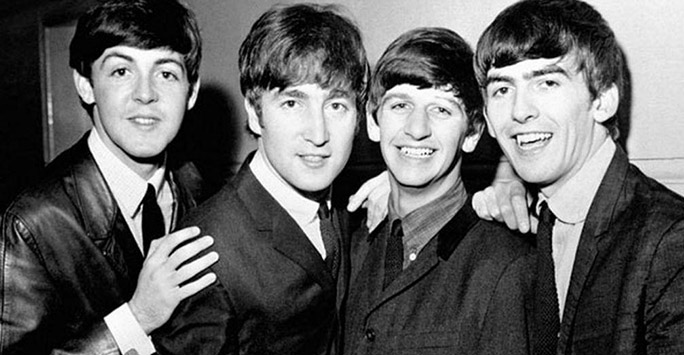Understanding the Current and Future Value of the Beatles Legacy in Liverpool
Background
The Beatles have had a major impact on people all over the world and have been voted by the British public as ‘the best band of all time’ (1999, Music of the Millennium Poll). For Liverpool, the city they emerged from, Beatles heritage has become a valuable asset, helping to profile and sell the city on the world stage. Beyond the Beatles, the musical heritage of Liverpool is rich and diverse. The city has been named the world 'City of Pop' (2001, the Guinness Book of Records), 'the UK's Most Musical City' (2008, Arts Council England survey), and ‘City of Music’ (2015, UNESCO). There’s no doubting that Liverpool shares a very special relationship with music, with the city’s economy benefiting greatly from the visitors and investment it helps attract.
The project
Research on the legacy of the Beatles and its economic and cultural value for Liverpool was conducted by a team of researchers from the Institute of Popular Music (University of Liverpool), the Institute of Cultural Capital (Universities of Liverpool and Liverpool John Moores University) and the European Institute of Urban Affairs (Liverpool John Moores University). The research team worked on the project alongside partners Culture Liverpool, Merseytravel, the National Trust and Marketing Liverpool.
This research established a baseline understanding of what the Beatles legacy and ‘industry’ is worth to the city of Liverpool, focusing not only on economic value but also the intangible benefit to the Liverpool ‘brand’. It catalogued and mapped Liverpool’s Beatles-related cultural offer for the first time, estimating the current value of the Beatles legacy, identifying gaps in cultural provision and projecting the future potential value of the Beatles legacy if such gaps are addressed.
At the Institute of Popular Music (IPM), homed in the Department of Music, Mike Jones contributed research on the cultural value of the Beatles. This included investigating gaps in the current tourism offer and the potential value of the band should these gaps be filled.
Outcomes
The project resulted in a report published on 8 February 2016 and entitled Beatles Heritage in Liverpool and its Economic and Cultural Sector Impact. The report is orientated around the policy needs of the project stakeholders and provides robust intelligence and recommendations to engage and mobilise those within the local Beatles legacy industry. It is structured around four core research elements:
- Historical mapping of the historical events and actions that tie the Beatles to specific places, spaces and events within the city of Liverpool. The final report highlights the importance of these key locales and events to potential legacy, visitor and city branding value.
- Space and place mapping of the city’s current Beatles offer, which was compared to the historical mapping, with strong, weak and missing provision identified.
- Cultural impact of the Beatles on the past, current and future character of the city, in order to provide a concise account of the non-economic value of the Beatles to the character of the city.
- Regional economic impact of the Beatles legacy and future possibilities. Here, the outcomes of the first, second and third research strands were used to provide an economic impact assessment of the current and future potential impacts of the Beatles legacy on the city.
Since the publication of the report he co-authored, Mike Jones has made a wide-range of contributions to new tourism and cultural projects in Liverpool. In the first instance, the Lord Mayor created a Beatles Legacy Group in direct response to one of the recommendations made in the report. Subsequently, the Beatles Legacy Group has driven policy intervention in the areas of trading and premises licensing and in the introduction of conservation measures at key tourism sites.
As a member of the Beatles Legacy Group, Jones was invited to act as consultant on two major cultural projects. Firstly, in the planning of the Strawberry Field visitor centre as an employment project for students with special needs. Secondly, in the planning of the city of Liverpool’s celebration of the 50th anniversary of the release of the Beatles album Sgt. Pepper’s Lonely Hearts Club Band. The impact of Jones’ work is further demonstrated by invitations to contribute to public events from Liverpool City Council, Radio Merseyside, the Beatles Story Museum, Liverpool International Music Festival and MILAPFEST.
